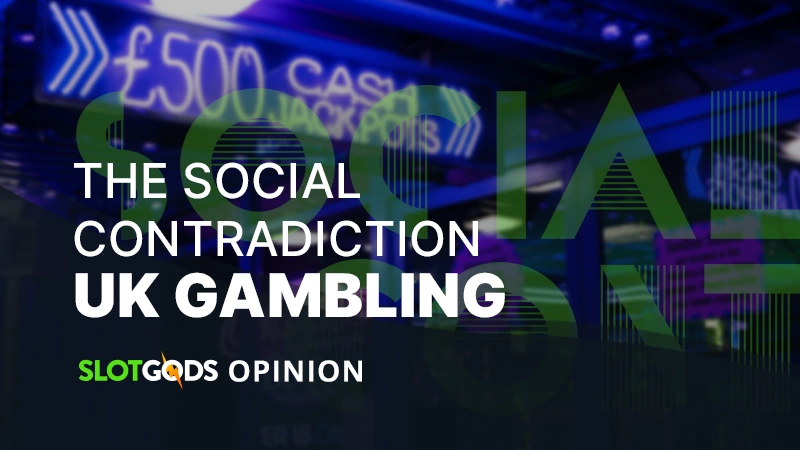UK gambling – the social contradiction

Gambling has a long history in the UK and legislation governing the pastime has been on the statute books in England since 1541, as lotteries and horse racing began to grow in popularity. The first betting houses proliferated in the 19th century, while the 20th century saw bingo emerge to become something of a British institution. In more modern times, the explosion of online and mobile betting has taken gambling to a whole new level – a now multi-billion-pound regulated industry serving millions of people.
Unfortunately, for a small minority of customers, problematic gambling behaviour remains a reality – and something covered widely in the media in recent times. As a result, the UK government is currently in a legislation-tightening mood, shifting as it does periodically from agendas of liberalising to restricting. Yet for all the lectures and concerns around gambling and betting, there is a fundamental contradiction at play.
While there can be little doubt about the impact of harmful gambling on those affected, the regulated gambling sector in the UK delivers some significant social good at the same time. From employment and substantial tax revenue to funding responsible gambling campaigns and treatment, and even just providing a fun form of entertainment enjoyed by the masses, gambling has a lot to bring to the table. And of course, there's the good causes supported and developed by National Lottery money in the last 30-odd years.
How the numbers stack up
Gambling in the UK is big business and in 2022-23 alone, betting and gaming accounted for £3.3 billion in tax receipts. That doesn’t include money generated from the employment of an estimated 100,000 people in the sector – both in their PAYE receipts and knock-on benefits of what they spend. It’s undeniable that the regulated gambling industry is a major contributor to government coffers and a key component of the UK economy.
To give a little context, the gambling tax receipts alone could pay the salary of 110,000 nurses, 82,500 teachers, or fund 3 of England’s biggest hospitals for an entire year.
At a time when government resources are stretched, financial inputs such as that provided by the gambling sector can’t be ignored. With the UK government currently running a deficit of £132 billion per annum, there is no doubt that there is a measurable social good from having a regulated legal gambling sector. Yet despite the contributions in tax receipts, there remains a fairly common impression that gambling is a harmful activity – often expressed out of proportion with the realities of those experiencing gambling harms.
Without wishing to diminish the experiences of those who do suffer the impacts of harmful gambling, context is important – problem gambling impacts a small minority at around 0.5% of the population. And with such substantial contributions from the sector to government coffers – comparable to Air Passenger Duty revenues for the same period – it’s something of a contradiction for the government to continually tighten regulation while relying on the contribution to public funding that legal gambling delivers.
Funding research, education and treatment
The gambling industry supports the funding of research, education and treatment on a voluntary basis – although this will soon be a statutory obligation, according to the latest white paper on gambling regulation. This could see online operators contributing up to 1% of revenues moving forward.
While there is perhaps an argument that these issues would be less prevalent without a legal gambling sector the size that currently exists in the UK, there is no denying the industry’s contribution to responsible gambling messaging, and to the support services provided for those who need them. The industry already contributes over £100 million each year to help fund research, education and training – and this is before the introduction of any mandatory levy.
Where to draw the line?
For all that gambling can be problematic for some people, it is enjoyed by millions of people in the UK and beyond every day without issue. Only a small minority of gamblers ever experience social harms or problems as a result of their habit, and the industry itself contributes billions to the exchequer as well as to other social goods as part of its responsibilities to the wider community.
Other activities present more obvious risks to society but seem more protected from government (over)reach. Alcohol consumption is an obvious example, bringing in roughly £13 billion a year for the public purse – compared to £3.3bn from gambling. There are an estimated 600,000 alcohol-dependent alcohol drinkers in the UK with 24% of adults in England and Scotland regularly drinking over the Chief Medical Officer's low-risk guidelines – yet nobody is demanding proof of income (or to know how much someone earns) before entering a pub, or tells them what they can spend on each pint.
Could it be that the gambling industry doesn't currently bring in enough revenue to enjoy the same freedom from increasingly tighter restrictions?
